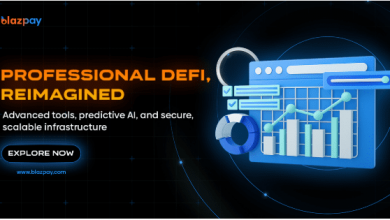Legal Aid for Bankruptcy in Florida: Your Path to Financial Relief

Navigating the complexities of bankruptcy can be an overwhelming experience, particularly for individuals and families facing financial distress. In Florida, legal aid services play a crucial role in providing support and guidance to those considering bankruptcy as a viable option for regaining financial stability. Whether due to unforeseen medical expenses, job loss, or mounting debt, many Floridians find themselves in need of expert advice and representation to understand their rights and options. Legal aid organizations across the state offer valuable resources, including consultations, document preparation, and courtroom representation, ensuring that individuals have access to the legal expertise necessary to navigate the bankruptcy process. This article explores the various avenues of legal aid available for bankruptcy cases in Florida, highlighting the importance of seeking professional assistance. By examining the benefits of legal representation, the types of services offered, and how to access these resources, we aim to empower Florida residents facing financial challenges to take informed steps toward reclaiming their financial futures. Understanding the role of legal aid in bankruptcy can be the first step on the path to financial relief, transforming what may seem like an insurmountable burden into an opportunity for a fresh start.
Understanding Legal Aid Options Available
Accessing legal aid for bankruptcy in Florida is essential for individuals facing financial difficulties who may not have the resources to hire private counsel. Various organizations, including non-profits and law schools, provide free or low-cost assistance to those in need. These services can range from initial consultations to full representation in bankruptcy proceedings. It is important for individuals to explore these options as they navigate the complexities of bankruptcy law, ensuring that they fully understand their rights and obligations under federal and state statutes.
Additionally, qualifying for legal aid often depends on specific income and asset criteria, which can vary between organizations. Engaging with legal aid can empower individuals to make informed decisions about their financial futures, potentially leading to a fresh start through Chapter 7 or Chapter 13 bankruptcy. Utilizing these resources not only alleviates the burden of legal fees but also connects individuals with knowledgeable professionals who can guide them through the process, ensuring that they comply with all legal requirements and maximize the benefits available to them.
How to Qualify for Assistance
To qualify for assistance, individuals typically need to demonstrate financial need, which is often assessed through income limits that correspond to the federal poverty guidelines. Many organizations offering legal aid for bankruptcy in Florida require applicants to provide documentation of their income, assets, and debts, ensuring that assistance is directed to those most in need. It is advisable for applicants to gather necessary financial statements and tax returns, as these will facilitate a smoother qualification process.
- 9 Essential Documents to Prepare for Your Bankruptcy Attorney Denver Consultation
- When Should a Small Business Owner File for Bankruptcy?
In addition to financial criteria, certain legal aid organizations may prioritize cases based on urgency or specific circumstances, such as foreclosure threats or imminent wage garnishments. Understanding these eligibility requirements can help individuals prepare effectively when seeking legal aid. Moreover, some organizations may offer services on a first-come, first-served basis or may have specific intake procedures, so timely action is crucial for those looking to secure assistance promptly.
Steps to Access Legal Support
Navigating the process of obtaining legal aid for bankruptcy in Florida begins with researching available resources. Individuals should identify local organizations that specialize in bankruptcy assistance, which can include non-profits, legal clinics, and government programs. Many of these organizations provide initial consultations, either for free or at a low cost, to assess the individual’s situation and determine the next steps. It is crucial to contact these organizations promptly, as their capacity to assist may be limited and demand can fluctuate based on prevailing economic conditions.
Once an organization is selected, applicants typically need to fill out an intake form, outlining their financial situation and the circumstances surrounding their bankruptcy. This information is critical for the legal professionals to provide tailored advice and support. Additionally, individuals may be required to participate in an interview, either in person or virtually, to further clarify their case. Being prepared with all necessary documentation and maintaining open communication with the chosen legal aid provider will enhance the chances of receiving timely and effective assistance in navigating the bankruptcy process.
In conclusion, navigating the complexities of bankruptcy can be daunting, but legal aid in Florida offers a vital pathway to financial relief for those in need. By understanding your rights and options, and by seeking the assistance of experienced legal professionals, you can effectively address your financial challenges and work towards a fresh start. Whether through Chapter 7 or Chapter 13 bankruptcy, the support provided by legal aid organizations ensures that individuals receive the guidance necessary to make informed decisions and regain control of their financial futures. With the right resources and support, a brighter financial outlook is within reach.





